Liverpool’s Premier League title glory was brilliantly depicted in The End of the Storm documentary and we get the inside scoop into how it came to be from director James Erskine.
The events which took place within the 2019/20 season are ones which will forever be etched, not only in the club’s record books but also in history for the world climate which existed outside of the football bubble.
For the Reds, it was a campaign 30 years in the making as the ever-elusive league title finally made it’s way back to Anfield and into the safe hands of Jordan Henderson and Jurgen Klopp.
And The End of the Storm documentary is one which takes you along for the ride, charting the steps and growth of Liverpool under the German’s tutelage before thrusting you into a season which had it all.
From stepping foot into the homes and lives of fans around the world to inside Liverpool training and into the thoughts of the manager and a handful of his players, the themes of growth, loss and triumph take centre-stage in what was an unprecedented season.
The making of the documentary had its own challenges after a global pandemic through a spanner in the works and This Is Anfield got the lowdown from the Emmy-nominated director James Erskine.
Without further ado, here’s a snippet of our chat with Erskine on the making of The End of the Storm, and you can watch the full in-depth video above.
How and when was the idea for the documentary conceived?
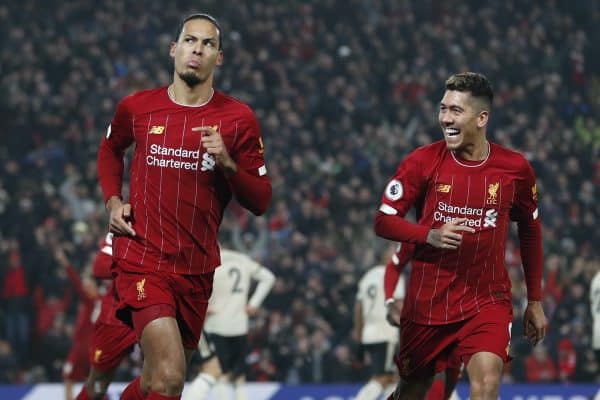
We came in during the season when it became evident that Liverpool were going to have a good shot of winning the league. I’d made a film previously, on Amazon for a series called ‘This Is Football’ which followed three Liverpool fans of Rawadan Reds and told the story of the Rwandan genocide through these three Liverpool fans, and how they used the club and the community of the club globally to sort of rebuild their identity and their friendships and even in many ways replace family members or be stand-in family members.
And so that film had happened and the club had seen it and really liked it so they had approached us and said, ‘Have you got an idea to make something about this season and what it means to everybody and to the fans’?
And we said ‘okay we’ll work up some ideas’, and we began talking to them and putting the wheels in progress for the film to happen from just before the pandemic started.
The pandemic then hits and the story becomes a tale of two halves, how did you want to portray that?
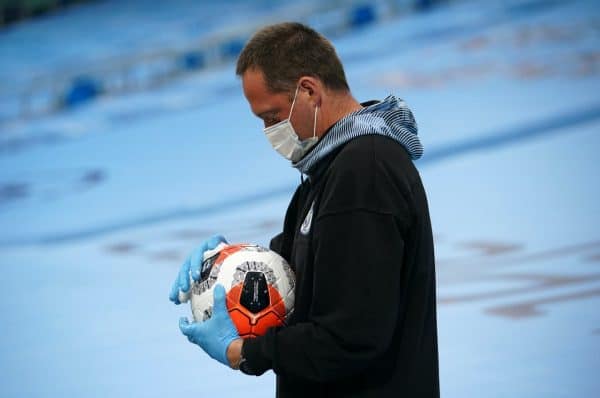
I mean in some in some senses the film is a horror film because, you know, everything is going as brilliant as possible and we lay on how brilliantly it’s going and how perfect it is, and then the greater forces of nature intervene and seem to smash the dreams of not just one individual player, or a group of players, or even the club but a worldwide community of fans who live and breathe the club, whose daily lives are massively embellished by the success of the club.
So it has trips of a horror film in a way. I mean, that’s what a football fans’ life is like isn’t it, you remember the glory moments but you also remember the moments of where things didn’t quite happen. I sort of wanted to convey that so even if you knew less about the club or weren’t a Liverpool fan, that you could feel the emotional journey that the fans were going on. And for fans that they could perhaps capture in a different way, capture the story of the season seeing from an outside lens.
You couldn’t write what would then happen as a movie, could you?
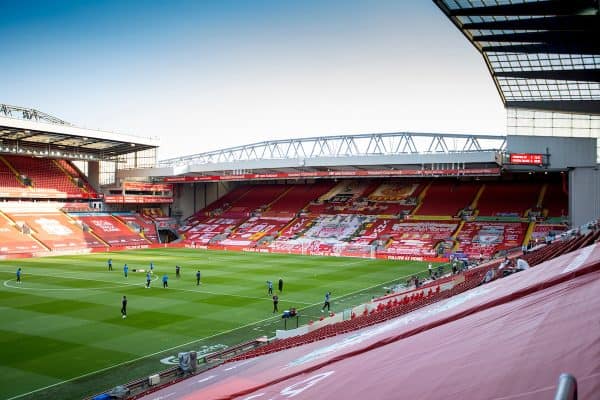
No, you couldn’t. But in some in some sense, it was inevitable that a pandemic would hit on the season when Liverpool was so close. Things like the Gerrard slip and other moments that have happened through history it sort of seemed to be the lot of Liverpool fans to come so close and yet have something snatched away from us.
And that’s sort of what makes it quite universal really is we all feel like there’s that moment where something just could have been it and it would have changed our lives forever, you know the sliding doors moment I suppose. For me, obviously, the pandemic becomes a big part of the story and it adds to add to that and from a filmic term it really makes the emotion of that feel very real for everybody.
Why was it important to intertwine Henderson as a main focal point throughout?
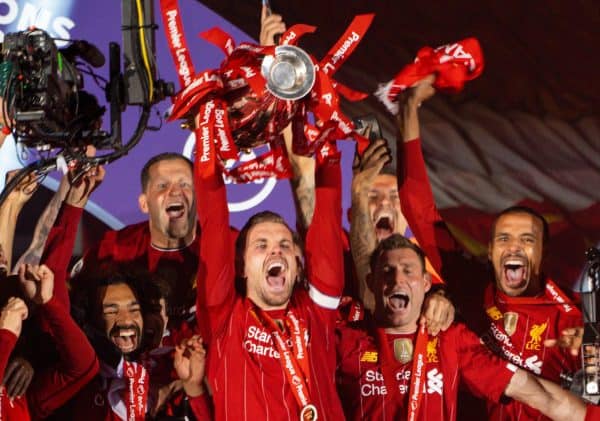
I think Jordan’s story is extraordinary, I think Jordan’s an extraordinary player and an extraordinary human being. I really wanted you to have the sense of his journey in there and that actually it’s not a world of perfection, it’s a world of struggle.
You see the stuff with Jordan as a kid and you think that Jordan could do that, it’s like he looks like Zidane or, I don’t know and I sort of wanted to build up his importance by showing his struggle. If you look at, statistically, when Jordan plays the club and the team plays much more successfully than when he doesn’t play, he really is the heart of that.
And also because you know obviously Jurgen is a massive part of the film and you know Jurgen is a massive character, but it’s interesting to see him versus someone like Jordan who’s a very different character but yet Jurgen has brought him on as a player but also has made him the captain, trusted in him as the captain. And it was a question to me from the outside, why Jordan and why not Virgil as the captain, but I think the film expresses why it matters the emotions.
I’m sure Virgil would make a great captain but Jordan has the years, the legacy, the pain and in some way reflects the manager more closely than Virgil, I think.
And what did the absence of fans in stadiums reveal in the final cut?
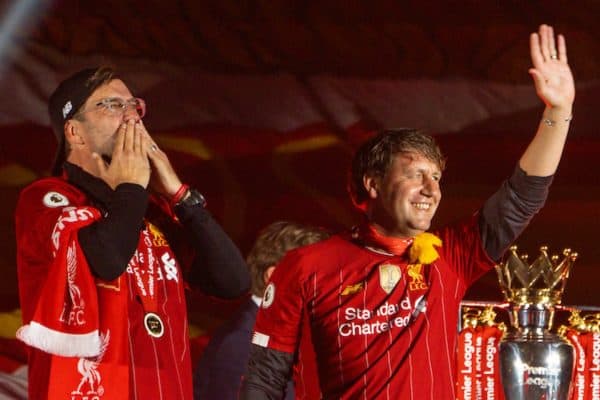
It would have been brilliant for it to have been won in front of the Kop with everybody cheering and enjoying and for the players to have that moment of communion, but it’s still brilliant that they won it without the people there.
And the people were there they just physically weren’t there, they were emotionally tied. The power of football is that there’s hundreds of millions of people watching around the planet.
What other situation do you get where you have a bloke in China and a bloke in Rio and some people in Detroit thinking the same thing as a Liverpool fan at exactly that moment, jumping out of their seats at exactly that moment. The power of the global sport of football is a unifying force.
The End of the Storm is out now on Digital, DVD & Blu Ray. Buy from Amazon here.
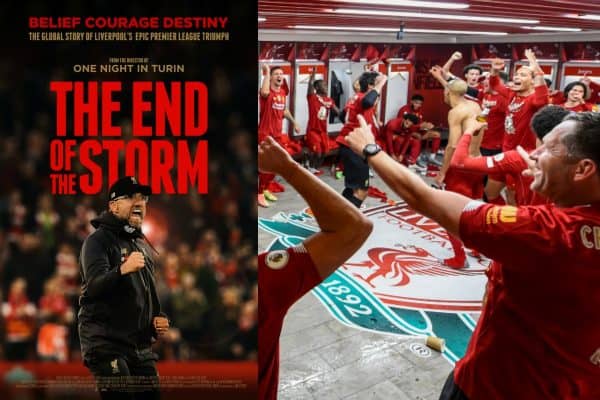




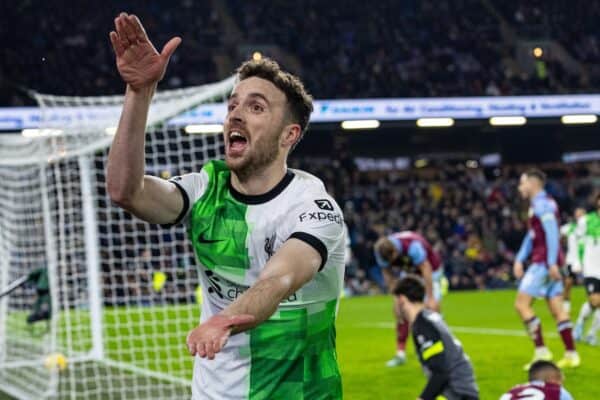
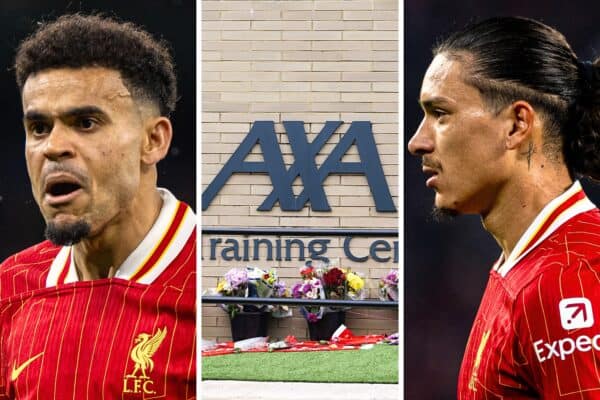
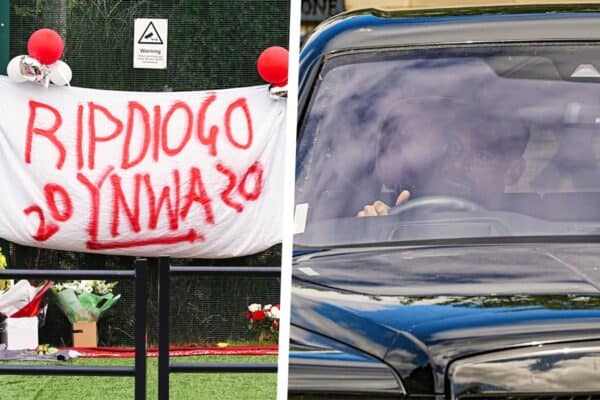


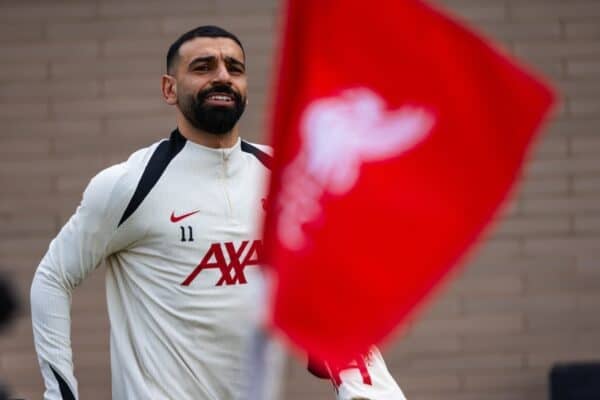
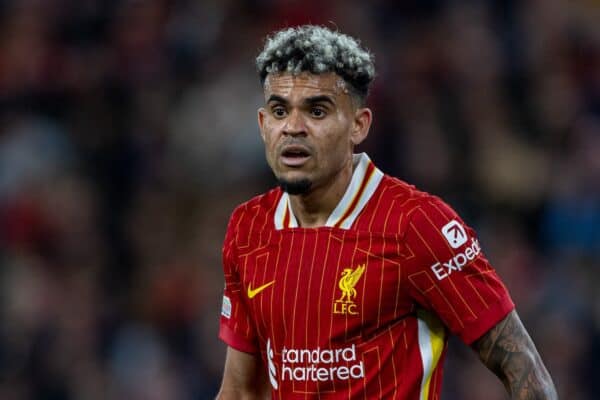
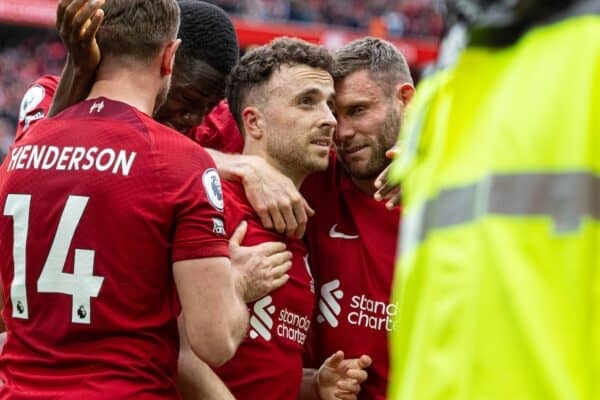




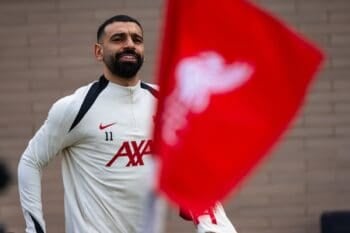
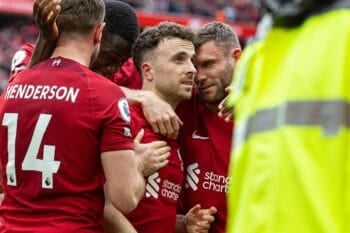
Fan Comments